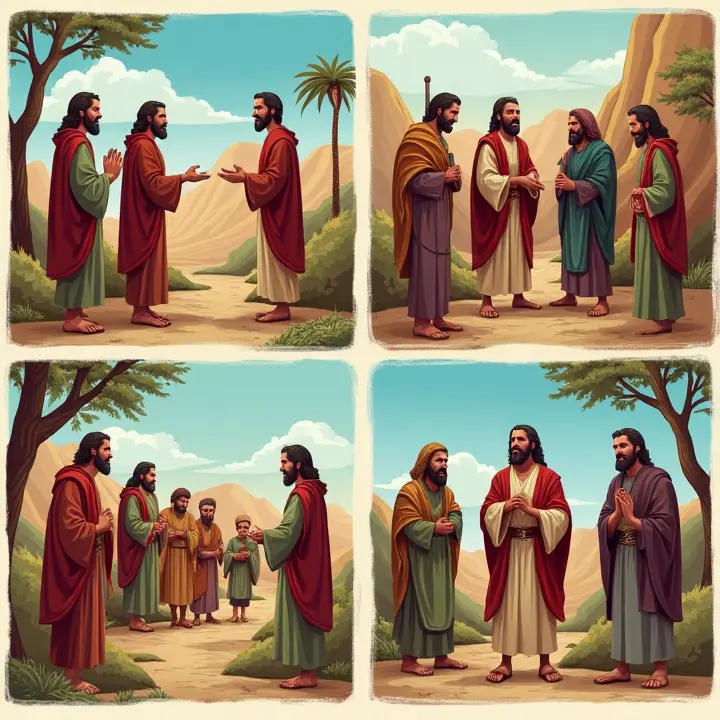Jealousy is a powerful and destructive emotion that has plagued humanity since the dawn of time. The Bible, a rich tapestry of stories and teachings, provides several examples of jealousy and its consequences, serving as cautionary tales for us to learn from.
One of the most well-known stories of jealousy in the Bible is the story of Cain and Abel. Cain and Abel were the sons of Adam and Eve. Cain was a farmer, while Abel was a shepherd. They both brought offerings to God. Abel’s offering was accepted by God, while Cain’s was not. This rejection filled Cain with jealousy and anger. Instead of seeking reconciliation or understanding, Cain allowed his jealousy to fester and ultimately murdered his brother Abel. This tragic story illustrates the devastating power of jealousy. It shows how envy can lead to violence and destruction, not only of relationships but also of one’s own soul. Cain’s jealousy blinded him to the value of his brother’s life and led him down a path of sin and regret.
Another significant story involving jealousy is found in the life of Joseph. Joseph was the favored son of Jacob, and his brothers were envious of the special treatment he received. Their jealousy was further fueled when Joseph shared his dreams, which seemed to suggest that he would one day rule over them. Unable to tolerate their brother’s favored status, Joseph’s brothers conspired against him. They sold him into slavery and told their father that Joseph had been killed by a wild animal. Joseph’s life took a dramatic turn as a result of his brothers’ jealousy. However, the story does not end in despair. Despite the hardships he faced, Joseph remained faithful to God. Eventually, he rose to a position of great power in Egypt and was able to save his family from famine. This story teaches us that while jealousy can lead to suffering, it does not have the final say. Joseph’s faith and resilience allowed him to overcome the consequences of his brothers’ envy and ultimately bring about redemption and reconciliation.
The story of Saul and David also highlights the destructive nature of jealousy. Saul was the first king of Israel, but God chose David to be the next king. As David’s popularity and success grew, Saul became increasingly jealous. He saw David as a threat to his own power and sought to eliminate him. Saul’s jealousy led him to pursue David relentlessly, even though David had done nothing to deserve such treatment. David, on the other hand, remained loyal to Saul and trusted in God’s plan. Despite the danger he faced, David refused to harm Saul, recognizing that Saul was still the anointed king. Saul’s jealousy ultimately led to his downfall, while David’s faith and integrity allowed him to rise to greatness. This story shows that jealousy can cloud one’s judgment and lead to self-destruction, while humility and trust in God can lead to true success and honor.
In the New Testament, we also see examples of jealousy. One such example is the story of the Pharisees and Jesus. The Pharisees were religious leaders who were envious of Jesus’ popularity and influence. They saw him as a threat to their own authority and sought to discredit him. Their jealousy led them to conspire against Jesus, ultimately resulting in his crucifixion. However, Jesus’ death and resurrection brought about the salvation of humanity. The Pharisees’ jealousy blinded them to the true message of Jesus and led them down a path of spiritual darkness. This story serves as a reminder that jealousy can prevent us from recognizing and embracing the truth.
The Bible teaches us that jealousy is a sin that can have far-reaching consequences. It can destroy relationships, lead to violence, and blind us to the truth. However, it also shows us that we can overcome jealousy through faith, humility, and trust in God. The stories of Cain and Abel, Joseph, Saul and David, and the Pharisees and Jesus all serve as powerful reminders of the dangers of jealousy and the importance of cultivating a heart of love and gratitude.

